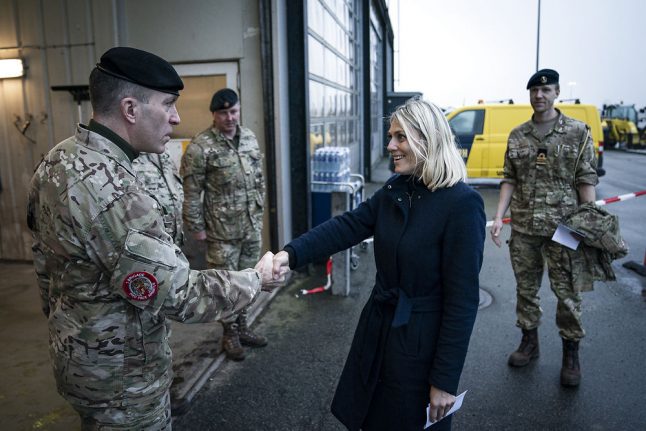“When they come to Sweden, the first thing many Christian Iraqis do is go to the church. Some do it because they are strong believers, but also because they want to meet other people, get help in dealing with the Swedish administration, understand society, and find work,” Isam Kalka, a 34-year-old Iraqi from the northern town of Arbil who arrived in Sweden in 1991, tells AFP.
Kalka, who runs a convenience store in central Stockholm, says the churches attended by Christian Iraqis play a crucial role in helping the newly-landed immigrants get their bearings in their new country.
“The church has a role to play beyond the spiritual one: to integrate people in society,” he says.
Sweden is the European country that has taken in the most Christian Iraqis, who have been persecuted for the religious beliefs in their own homeland.
They number some 30,000 in Sweden and 70,000 in Europe, according to the European Syriac Union. Most of them arrived either during the first Gulf War in 1990-1991 or after the US invasion of Iraq in 2003.
Some 97,500 Iraqis lived in Sweden in 2007, according to Statistics Sweden, with the country taking in more Iraqis last year than any other nation in Europe.
Isam Kalka is an active member of the Association of Young Chaldeans, which has ties to the Johannes Chaldean Church in Södertälje, a small town south of Stockholm with a large Christian Iraqi community.
In 2006 and 2007 some 4,000 Iraqi refugees, almost all of them Christians, arrived in Soedertälje and the town expects about another 1,000 to arrive in 2008.
Kalka happily helps newly arrived immigrants who come to him asking for assistance in cutting through the web of red tape involved in moving to a new country.
The Johannes church has no formal programme to help new refugees.
Instead, the support is informal and spontaneous, provided by the members of the community who feel a strong sense of solidarity and joint identity through their Christian roots, Kalka says.
Sweden, known for its generous humanitarian aid and refugee policy, provides extensive assistance to immigrants, guaranteeing them housing, helping them find jobs and providing Swedish language classes.
But the churches pick up where the help from the state ends — by providing a natural meeting place for people who have gone through the same experience.
When Christian Iraqis arrive in Sweden, the church “is the only thing they know,” says Benyamin Atas, the Turkish archbishop of the Syriac Orthodox Church in Södertälje.
Refugees naturally turn first toward their family and relatives in Sweden when they arrive, but “when they need something, some advice, they turn to the church” where the doors are almost always open, he says.
For Nabil Radif, an Iraqi engineer in his 50s who has lived in Sweden since 1992, the church is a way to strengthen one’s identity when you arrive in a new country.
It’s also an opportunity to get together to talk about current events in Iraq, with many Iraqis concerned about the safety of their loved ones left behind in the war-torn country.
“In most regions, Christians are told to convert to Islam or leave the country. They are subjected to threats, kidnappings and robberies,” says Nabil Radif who regularly phones home to provide support.
Twenty-four-year-old Nawar, who arrived in Sweden from Baghdad in 2003, shares the same concerns as Radif.
“My family has the same problems as all Christians. They don’t have a good life over there, they keep wondering when they’re going to die,” he says as he leaves a religious service at the Syriac Orthodox Sankt Mikael’s Church in Södertälje.
Before the US invasion of Iraq in March 2003, Iraq’s Christian community had more than 800,000 members, or about three percent of the population in the largely Muslim country. Many of those have since fled the country or moved to Iraqi Kurdistan.
AFP’s Sophie Mongalvy


 Please whitelist us to continue reading.
Please whitelist us to continue reading.